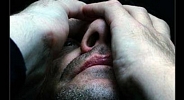Do you feel as if you are being stalked by a grizzly bear? Is your system always on high alert? Do you experience headaches, body aches, digestive distress, anxiety, or sleeplessness? The common culprit behind these symptoms could be….STRESS!
What are the stressors in your life? Do you have neck or low back pain from lifting and transporting patients? Do you feel pulled in different directions, trying to meet the needs of your patients and their doctors? Are you trying to get more done in less time?
“Stress” has become such a common household word that we use it to describe everything from the rush of the morning commute to the hours of homework our children complete after their mandatory club soccer practices.
Stress is harmful because stress imbalances every hormone system in your body. To achieve optimum health and an ideal body composition, you must focus on regular stress management.
When you experience a stressor, there are three phases to your response: 1) the stressful event, 2) your inner appraisal of it, and 3) your body’s reaction. The stress response is difficult to handle because once it begins, the mind has no control over it. Sitting in traffic or being criticized at work can trigger a stress response –the “fight-or-flight” reaction – that has no hope of being physically carried out, thus dissipating the hormones that create the body’s call to action.
Although you may not be able to control the stressful event -- or your body’s reaction to it -- your inner appraisal of it, the link between the event and your reaction, is up to you. The totally personal way in which you filter all events determines how stressful they are. Everyone has a different level of stress tolerance. What seems to create the greatest perceived threat in any given situation are these three factors: 1) lack of predictability, 2) lack of control, 3) lack of outlets for frustration.
5 Strategies to Manage Stress
1.Receive some bodywork.Massage therapy or chiropractic sessions can reduce the muscular and skeletal stress that result from tense, overwrought muscles. Caring for the physical body helps reset the emotional self as well.
2.Develop a practice of breath work. Breathing seems such a natural event; we often don’t realize when our breath has become shallow and limited. When we breathe fully and deeply, expanding the air into the bottom of our lungs, we receive the full benefit of oxygenating our brain and body. Our brain is 2% of our body’s weight and uses 20% of our body’s oxygen! Lack of oxygen increases feelings of helplessness, fatigue, and uneasiness. Full, deep breaths help balance the nervous system.
3.Meditate.Make time once or twice a day to turn within and commune with the still small voice that is the “you” inside your physical body. Even if it is only for five minutes, turning your attention within can help reset your thoughts and feelings and refresh your perspective.
4.Exercise.Move your body! Walking, biking, swimming or dancing all get the blood moving, carrying fresh oxygen to all parts of your brain and body. The “fight or flight” response shared by humans and animals is extremely helpful when you are faced with physical danger, like that grizzly bear in the first paragraph. If the problem can be solved by “fighting,” taking action to scare the bear away, or by “flight,” running away so fast the bear can’t harm you, the solution itself dissipates the stress and bodily functions return to normal. When stress is caused by a problem, situation, or condition that can’t be solved through such a response, the impact extends for a longer period. Exercise helps dissipate the hormones that accumulate in the body when it is stressed.
5.Be here now.Keep your thoughts focused on the present moment. It is really all that you have. Fretting about past events or worrying about what may happen in the future both sap your ability to enjoy where you are right now. Reviewing the past and planning for the future are two abilities of higher reasoning that humans have that differentiate us from other mammals. Don’t let circumstances take over your opportunity to see the gift that this moment brings you—that’s why it’s called the “present!”
Our bodies are wired for health and vitality, not for illness and disease.Health is how our bodies function, not how they feel. Health comes from the inside out. And, importantly, the choices we make play a part in our health and well-being. For more information on health and wellness, stress management, weight loss, and releasing emotional blocks that may be sabotaging your health, go to or .



